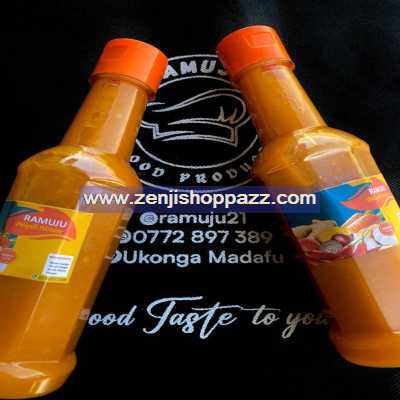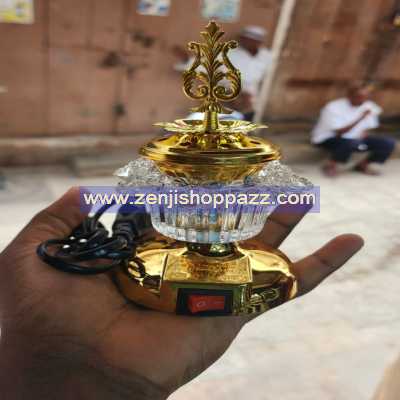Nafasi ya Kazi EVAW (End Violence Against Women) Program Officer
Maelezo
Chanzo: EVAW
Tarehe Iliyotolewa: 2023-07-03

EVAW (End Violence Against Women) Program Officer
Onsite
United Republic of Tanzania
10 months
assignment(s)
Fully funded
Advertisement end date:07/07/2023
General
Description of assignment title EVAW (End Violence Against Women) Program Officer
Assignment country United Republic of Tanzania
Expected start date 01/06/2023
Sustainable Development Goal Gender equality
Volunteer category National UN Volunteer Specialist
DoA reserved for persons with disabilities
No
Host entity UNWomen
Type Onsite
Duration 10 months
Number of assignments 1
Duty stations Zanzibar
Details
Mission and objectives
UN Women, grounded in the vision of equality enshrined in the Charter of the United Nations, works for the elimination of discrimination against women and girls; the empowerment of women; and the achievement of equality between women and men as partners and beneficiaries of development, human rights, humanitarian action and peace and security. Placing women’s rights at the centre of its efforts, UN Women is mandated to lead and co-ordinate United Nations system efforts to ensure that commitments on gender equality and gender mainstreaming are translated into action. It is also mandated to provide strong and coherent leadership in support of Member States’ priorities and efforts, building effective partnerships with civil society and other relevant actors. In line with the Tanzania’s national priorities, UN Women’s strategic Plan 2022-2026 lays out the agency’s unique role and comparative advantage in supporting national stakeholders in advancing gender equality and the empowerment of women by strengthening women’s leadership and participation in political and governance systems, gender statistics, implementation of global gender norms and standards, ending violence against women and girls, and women’s economic empowerment.
Context
UN Women's programmatic framework supports a comprehensive approach to prevention and response to End Violence Against Women and Girls (EVAW/G) through the development, implementation, and monitoring of the National Action Plans to End Violence Against Women and Children working in Zanzibar. The comprehensive National Action Plans to end Violence against Women and Children (NAPs) spearheaded by the Ministry of Community Development, Gender, Elderly and Children (MHCDGEC) is a substantive policy framework that guides UN Women's work. Furthermore, UN Women support the capacity development of key government institutions to review discriminatory laws and implement laws and policies on EVAWG in line with international standards and the recent CEDAW recommendations. UN Women strengthen the capacity of key influential leaders to enhance national-level advocacy for the reform and implementation of laws and policies to end violence against women and girls with a particular focus on the engagement of men and boys, including in the context of the HeForShe campaign. UN Women's critical attention to promoting the availability and accessibility of quality services for women and girls subject to violence; will support the establishment of effective services and coordination mechanisms for protecting women and girls in public spaces. Furthermore, The Women's Economic Empowerment Programme recognizes the need to support women increased agency in green and blue economies to ensure equal representation at all levels, including in the development of appropriate policy interventions, the deployment of more effective tools, technologies, infrastructure, and institutions to implement measures to build resilience, and the achievement of sustainable resource management for resilient green and blue value chains. Women remain key players and make up more than 50 per cent of the agricultural labor force in Tanzania. Therefore, they play a vital role in ensuring family food security. However, gender-based inequalities in access to and control of productive and financial resources inhibit their agricultural productivity and undermine their resilience and sustainability efforts, creating a substantial gender gap in productivity. Hence, the component on combating Gender Based Violence is very much needed in promoting economic empowerment as the cultural set-up where people are socialized from childhood to believe that girls and women are "secondary citizens" with limited rights to services (such as education) and property (including land and money) among other things. Moreover, strengthening livelihoods and food security for women and their families through active participation in the blue economy-related programs will contribute to the reduction of the incidence of gender-based violence and strengthen livelihoods for the targeted women by ensuring an increase in household assets and income diversification.
Task description
Under the direct supervision of the Programme Specialist/Program Manager on Ending Violence Against Women and Girls, the UN Volunteer will undertake the following tasks: 1.Programme Development and Management (40%) •Supports the implementation of ongoing programmatic initiatives with a specific focus on the EVAWG in public spaces especially in the Economic sectors.
•Contributes to the development of new WEE programme initiatives.
•Supports partnership development with other UN agencies, experts, government institutions and Civil Society Organizations ensuring timely and efficient delivery of inputs related to the assigned portfolio.
•Supports programme/projects monitoring and evaluation according to results-based management requirements.
2.Policy Analysis/Research (20%) 3.Supports policy analysis and research and identifies entry points for strengthening UN Women’s programming in the area of Prevention of VAWG linking with women’s economic empowerment.
4.Inter-Agency Coordination Support (20%)
•Supports annual reporting processes in relation to the UNSDCF.
•Participates in UNSDCF coordination meetings and in particular the Planet and Prosperity Outcome Groups.
•Supports collection of data and analysis and research.
5.Advocacy support and facilitation of knowledge building and management (20%) •Supports relevant, high-impact advocacy activities and campaigns with key partners of the UN Joint Programmes.
•Collects knowledge on current and emerging trends by gathering relevant information on programmes, projects, strategies, approaches, and ongoing experience for lessons learned, best practices at regional and global level. •Participates in program monitoring visits at the field level and helps to prepare reports.
•Contributes to knowledge networks and communities of practice. Furthermore, UN Volunteers are required to:
•Strengthen their knowledge and understanding of the concept of volunteerism by reading relevant UNV and external publications and take active part in UNV activities (for instance in events that mark International Volunteer Day);
•Be acquainted with and build on traditional and/or local forms of volunteerism in the host country.
•Reflect on the type and quality of voluntary action that they are undertaking, including participation in ongoing reflection activities.
•Contribute articles/write-ups on field experiences and submit them for UNV publica-tons/websites, newsletters, press releases, etc.
•Assist with the UNV Buddy Programme for newly arrived UN Volunteers. •Promote or advise local groups in the use of online volunteering or encourage relevant local individuals and organizations to use the UNV Online Volunteering service when-ever technically possible.
Eligibility criteria
Age
27 - 80
Additional eligibility criteria
This assignment is funded by the Government of Japan, therefore only Japanese nationals are eligible to apply.
Nationality
Candidate must be a national or legal resident of the country of assignment.
Donor priorities
-
Requirements
Required experience
3 years of experience in •Good interpersonal, networking and communication skills. •Willingness to contribute and work as part of a team. •Flexible and open to learning and new experiences. •Respect for diversity and adaptability to other cultures, environments and living conditions. •Previous experience as a volunteer and/or experience of another culture, (i.e., studies, volunteer work, internship) would be highly regarded. •Computer skills (i.e. Word, Excel, PowerPoint, social media, and others).
Area(s) of expertise
Agriculture, Economics and finance, Community development
Driving license
-
Languages
English, Level: Working knowledge, Required Kiswahili, Level: Fluent, Desirable
Required education level
Master degree or equivalent in •Master’s degree in Gender, Monitoring and Evaluation, Agriculture, Economics, Finan-cial Inclusion, Development Studies, Social Sciences, Community Development, or related fields. With 3-5 years in the areas of Ending Violence against Women (Social norms and behavior change towards gender equality) and its linkage with current economic reforms particularly Blue Economy, Food Security, Value Chain, Community Engagement and Public and informal/private Sectors Engagement.
Competencies and values
?Accountability ?Adaptability and Flexibility ?Building Trust ?Client Orientation ?Commitment and Motivation ?Commitment to Continuous Learning ?Communication ?Creativity ?Empowering Others ?Ethics and Values ?Integrity ?Judgement and Decision-making ?Knowledge Sharing ?Leadership ?Managing Performance ?Planning and Organizing ?Professionalism ?Respect for Diversity ?Self-Management ?Technological Awareness ?Vision ?Working in Teams
Other information
Living conditions and remarks
Tanzania, officially the United Republic of Tanzania, is in East Africa, bordered by Kenya and Uganda to the north; Rwanda, Burundi and the Democratic Republic of the Congo to the west; and Zambia, Malawi and Mozambique to the south. The country's eastern border is formed by the Indian Ocean. Kilimanjaro, Africa's highest mountain, is in northeastern Tanzania. Dar es Salaam is the largest city in Tanzania, as the major port and economic center. Dar es Salaam is situated on the coast, overlooking the Indian Ocean. It is an International multicultural city with a mix of religions. The city has a wide range of facilities available, including numerous shopping centers, movie theatres, restaurants and many new developments planned. The living conditions in Dar es Salaam are comfortable although pricy in certain neighborhoods and there are issues with poor infrastructure, so alternative back-up solutions and generators as well as water tanks are common. It is a beautiful and relatively safe location. There are good international education facilities and health facilities with good standards.
Inclusivity statement
United Nations Volunteers is an equal opportunity programme that welcomes applications from qualified professionals. We are committed to achieving diversity in terms of gender, care protected characteristics. As part of their adherence to the values of UNV, all UN Volunteers commit themselves to combat any form of discrimination, and to promoting respect for human rights and individual dignity, without distinction of a person’s race, sex, gender identity, religion, nationality, ethnic origin, sexual orientation, disability, pregnancy, age, language, social origin or other status.
Note on Covid-19 vaccination requirements
Selected candidates for certain occupational groups may be subject to inoculation (vaccination) requirements, including against SARS-CoV-2 (Covid-19) in line with the applicable host entity policy.
Bidhaa Mbalimbali
Zenye Promotion
Bidhaa Nyenginezo
Tembelea pia




 Download our app on Google Play
Download our app on Google Play








